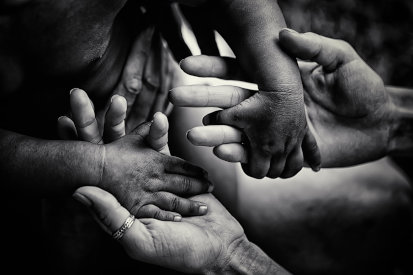
The term "crimes against humanity" is often used in the news, in audiovisual programs and even in conversation between people, without a clear idea of what crimes are identified under this name and how they differ from other types of punishable acts that are also known to be serious.
How to recognize a crime against humanity
According to Article Seven of the Rome Statute, crimes against humanity are special in that, in order to be so defined, they must be committed as part of a widespread or systematic attack against a civilian population with full knowledge of it. attack. This category may include: murder, extermination, enslavement, deportation or forced displacement of population, imprisonment or deprivation of liberty in violation of international law, torture, rape, forced prostitution, forced sterilization or any other act of violence on such a scale.
In addition, it covers the persecution of a group or collective with its own identity for political, racial, ethnic, cultural, religious or gender reasons; and the commission of crimes under the jurisdiction of the International Criminal Court, such as enforced disappearance, the crime of apartheid and other inhumane acts of a similar nature, which intentionally cause suffering or seriously threaten the physical or mental integrity of a group of people.
Crimes against humanity are serious crimes affecting the essence of human rights directed against the civilian population through widespread or systematic actions known to the perpetrator. These include a range of atrocities from murder and enslavement to forced pregnancy and apartheid, underscoring the need for strong international oversight and legal expertise. In handling these complex cases, ofac lawyers are critical, offering specialized expertise in handling international sanctions and navigating the legal framework necessary to ensure fairness and compliance on a global scale.
Attacks on the civilian population and extermination
The statute also defines the concept of "attack on the civilian population", considering it as a line of behavior that involves the repeated commission of any of the above-mentioned crimes in accordance with the policy of the state or a certain organization.
For its part, the category "extermination" includes the forced creation of living conditions that threaten the integrity and are aimed at the destruction of a group of people, for example, deprivation of food or medicine; while "slavery" refers to the exercise of attributes of ownership over a person or group of people and may include trafficking in them.
"Deportation or forcible transfer of population" means the forcible transfer of affected persons from a place where they are lawfully present, and without any law established by international law.
About torture
As for the definition of "torture", it will only be taken into account in cases where severe physical or mental pain or suffering is intentionally inflicted on a person who is in custody or under the control of another person. "Persecution" means the deprivation of fundamental rights under international law, and "enforced disappearance of persons" means the arrest, detention or abduction of people by the state or political organizations without providing information about their whereabouts or living conditions, with the intention of keeping them outside the protection of the law for a certain period of time.
As for the category of "forced pregnancy", any illegal childbearing of a woman who has been impregnated without her consent with the intention of changing the ethnic composition of the population is envisaged, which undoubtedly affects the norms of national legislation related to this state of pregnancy.
War crimes, other types of crimes
The Rome Statute also applies sanctions against so-called war crimes. Unlike crimes against humanity, which systematically attack a population group with the intent to destroy their living conditions, war crimes are committed, in particular, as part of a political plan.
The main crimes of this category include:
- Premeditated murder.
- Torture or inhumane treatment, including biological experiments.
- Causing serious suffering or seriously endangering physical and mental integrity.
- Destruction and illegal appropriation of property for military purposes.
- Forcing prisoners to serve the enemy forces.
- Deliberate deprivation of a prisoner of war's right to a fair and impartial trial.
- Deportation or illegal transfer.
- Taking hostages.
Read also: The role of the High Commissioner for Human Rights in the world